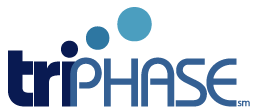Findings from Preclinical Study Presented at American Society of Hematology 2014 Annual Meeting
 TORONTO AND SAN DIEGO (Dec. 6, 2014) — Triphase Accelerator Corporation, a private drug development company dedicated to advancing novel compounds through Phase II proof-of-concept clinical studies, today announced preclinical study results demonstrating that the combination of its highly differentiated proteasome inhibitor, marizomib, and pomalidomide (Pomalyst®) was synergistic in killing multiple myeloma cells.
TORONTO AND SAN DIEGO (Dec. 6, 2014) — Triphase Accelerator Corporation, a private drug development company dedicated to advancing novel compounds through Phase II proof-of-concept clinical studies, today announced preclinical study results demonstrating that the combination of its highly differentiated proteasome inhibitor, marizomib, and pomalidomide (Pomalyst®) was synergistic in killing multiple myeloma cells.
MaRS Innovation is an early-stage investor in Triphase. See our web archive for more details.
Combined doses of marizomib and pomalidomide inhibited tumor growth and prolonged survival in disease models of this hematologic cancer. The data were presented December 6, 2014 in a poster session at the American Society of Hematology (ASH) 2014 Annual Meeting in San Francisco.
“New treatment options for patients with relapsed and refractory multiple myeloma are needed as nearly all patients will eventually relapse on currently available therapies,” said Paul G. Richardson, M.D., lead clinical investigator of the marizomib study group and director of clinical research, Jerome Lipper Multiple Myeloma Center, Dana-Farber Cancer Institute in Boston. “These preclinical results in disease models of multiple myeloma are highly promising as they demonstrate the potent activity of marizomib in combination with pomalidomide and support a clinical trial to increase response, overcome drug resistance, and improve outcomes in patients with relapsed and refractory multiple myeloma.”
“We are currently enrolling patients with relapsed and refractory multiple myeloma in a Phase I study of marizomib in combination with pomalidomide and dexamethasone,” said Frank Stonebanks, founder, president and CEO of Triphase. “The study is designed to provide both safety and initial efficacy signals.”
Study Design and Results
Previous preclinical studies have shown that marizomib triggers synergistic anti-multiple myeloma activity in combination with lenalidomide. In this study, researchers examined the anti-multiple myeloma activity of a combination of marizomib and pomalidomide, which has immunomodulatory properties and, like lenalidomide, is an analogue of thalidomide. Researchers used in vitro models of multiple myeloma, including multiple myeloma cell lines, multiple myeloma cells from patients and blood cells from healthy donors, and in vivo models. The multiple myeloma cells were pretreated with a control or with pomalidomide for 24 hours, and marizomib was then added for an additional 24 hours, followed by assessment of cell viability.
Results from the in vitro models showed that a significant decrease in viability of all cell lines and patient cells was observed in response to treatment with combined marizomib and pomalidomide compared with either agent alone. The synergistic anti-multiple myeloma activity of these agents was confirmed by a separate method of evaluating combination chemotherapy. The cytotoxicity of the marizomib/pomalidomide combination therapy was observed in multiple myeloma cells sensitive and resistant to conventional therapies (i.e., dexamethasone, doxorubicin and melphalan) and to novel therapies (i.e., bortezomib). Marizomib and pomalidomide also were shown to inhibit the proliferation of multiple myeloma cells and to block migration of multiple myeloma cells and angiogenesis. Results of the in vivo models demonstrated that combined doses of marizomib and pomalidomide inhibited tumor growth and prolonged survival and were not associated with any serious safety signals.
The marizomib abstract is available at www.hematology.org.
About Marizomib
Marizomib is a novel, highly potent proteasome inhibitor that irreversibly targets and inhibits all three proteasome subunits, allowing for more durable and sustained responses. Triphase is developing marizomib in both intravenous (IV) and oral formulations as a potential best-in-class proteasome inhibitor for hematologic malignancies and solid tumors. Marizomib has demonstrated activity in a Phase I study in patients with multiple myeloma refractory to lenalidomide or bortezomib. An IV formulation has been evaluated in more than 230 patients in four Phase I studies in patients with solid and hematologic malignancies, either as a single agent or in combination with dexamethasone or an HDAC inhibitor.
Triphase is currently evaluating marizomib in a Phase I study in combination with pomalidomide and dexamethasone in relapsed and refractory multiple myeloma. The Company plans to initiate a Phase I study of IV marizomib in glioblastoma (GBM) in early 2015. Triphase is also evaluating an oral formulation of marizomib in IND-enabling studies. The company has received orphan drug designation from the U.S. Food and Drug Administration and from the EU for marizomib in multiple myeloma.
About Triphase
Triphase is a private drug development company with a primary focus on oncology and operations in San Diego and Toronto. Triphase is dedicated to advancing novel compounds through Phase II proof-of-concept clinical studies using a unique, science-based, high-quality model that is faster and more cost-effective than traditional pharmaceutical and biotech industry drug development approaches. Triphase was spun out of the Ontario Institute for Cancer Research (OICR) and MaRS Innovation and has a strategic relationship with Celgene for oncology-focused drug development opportunities.

